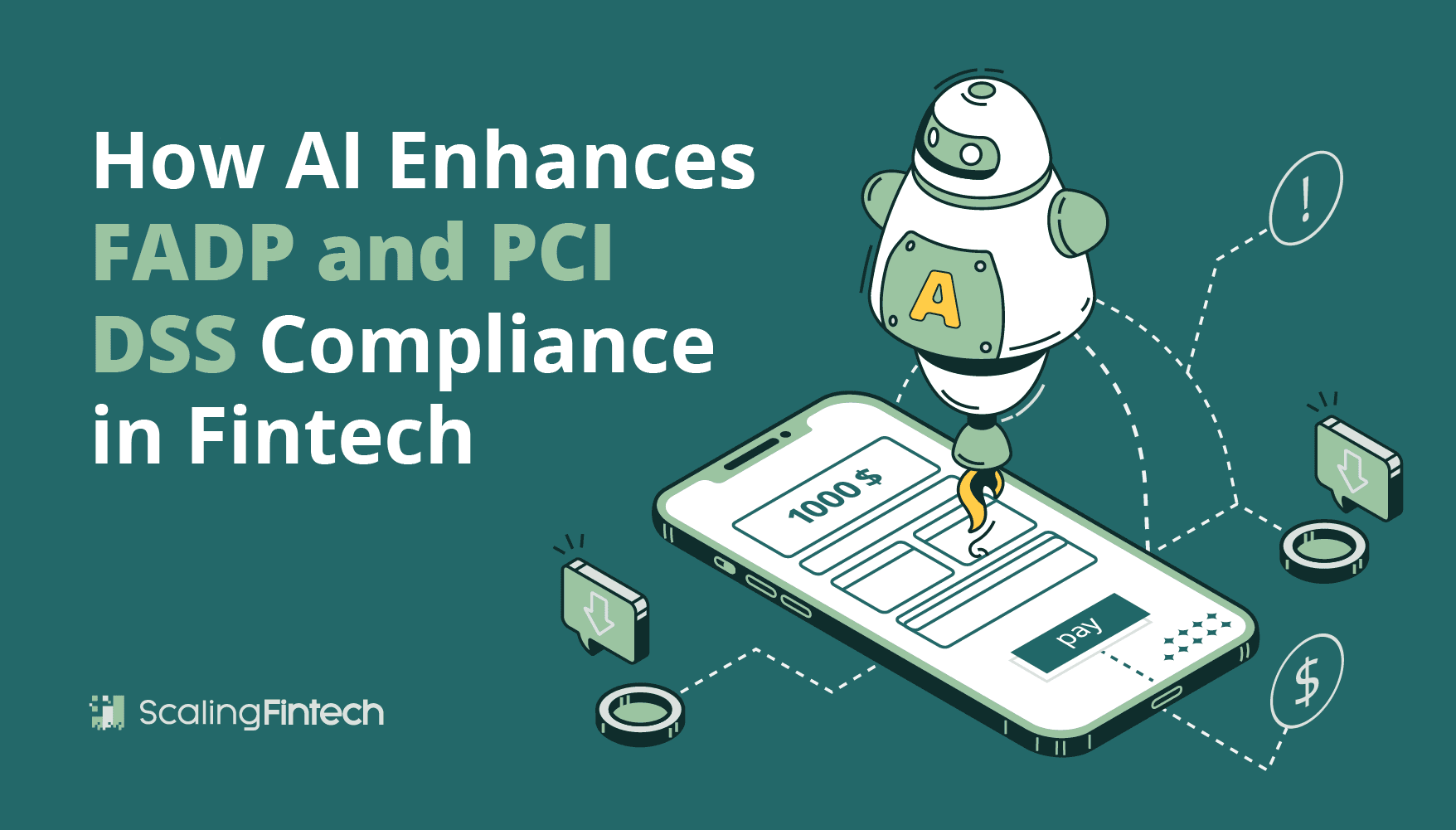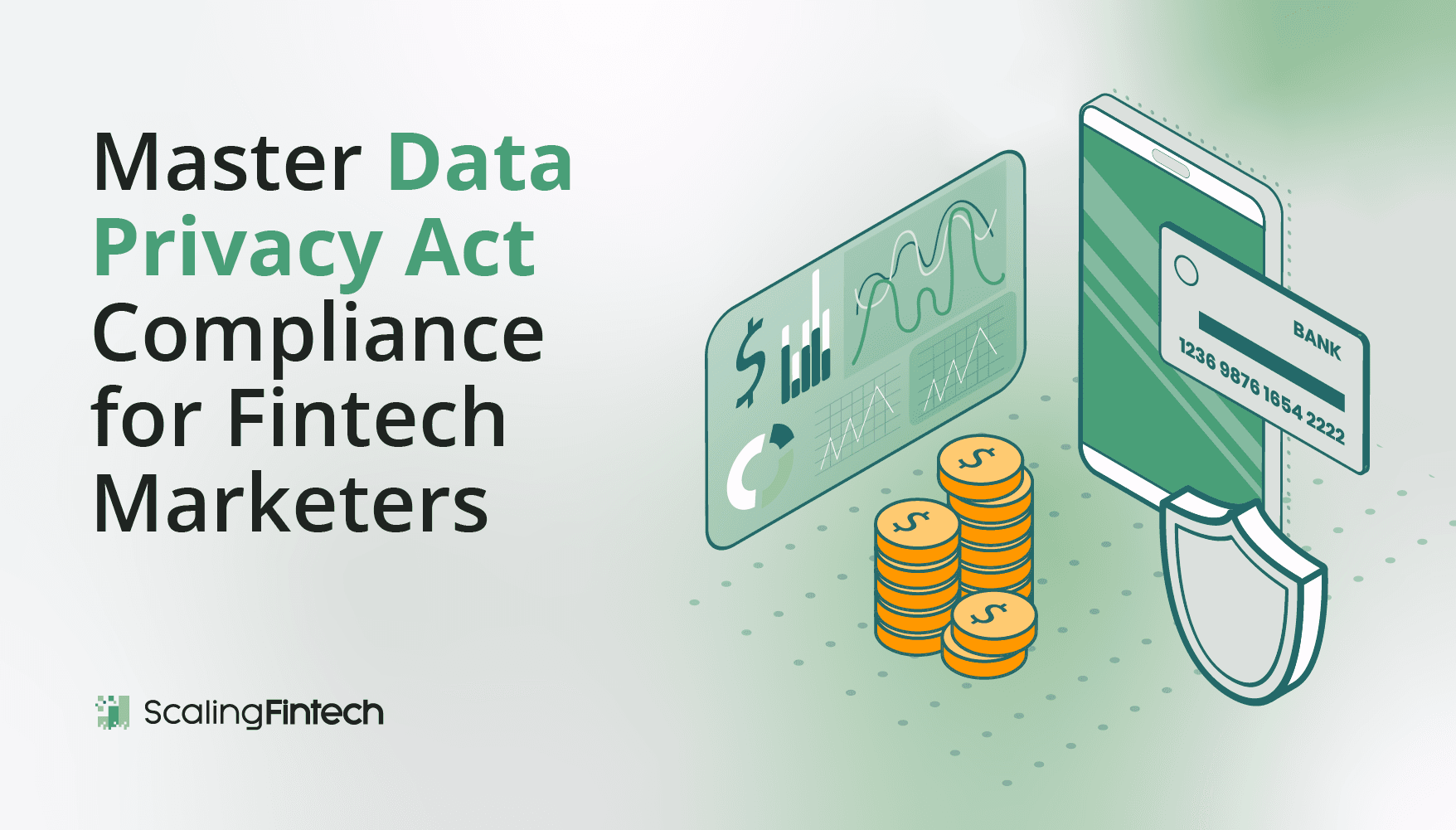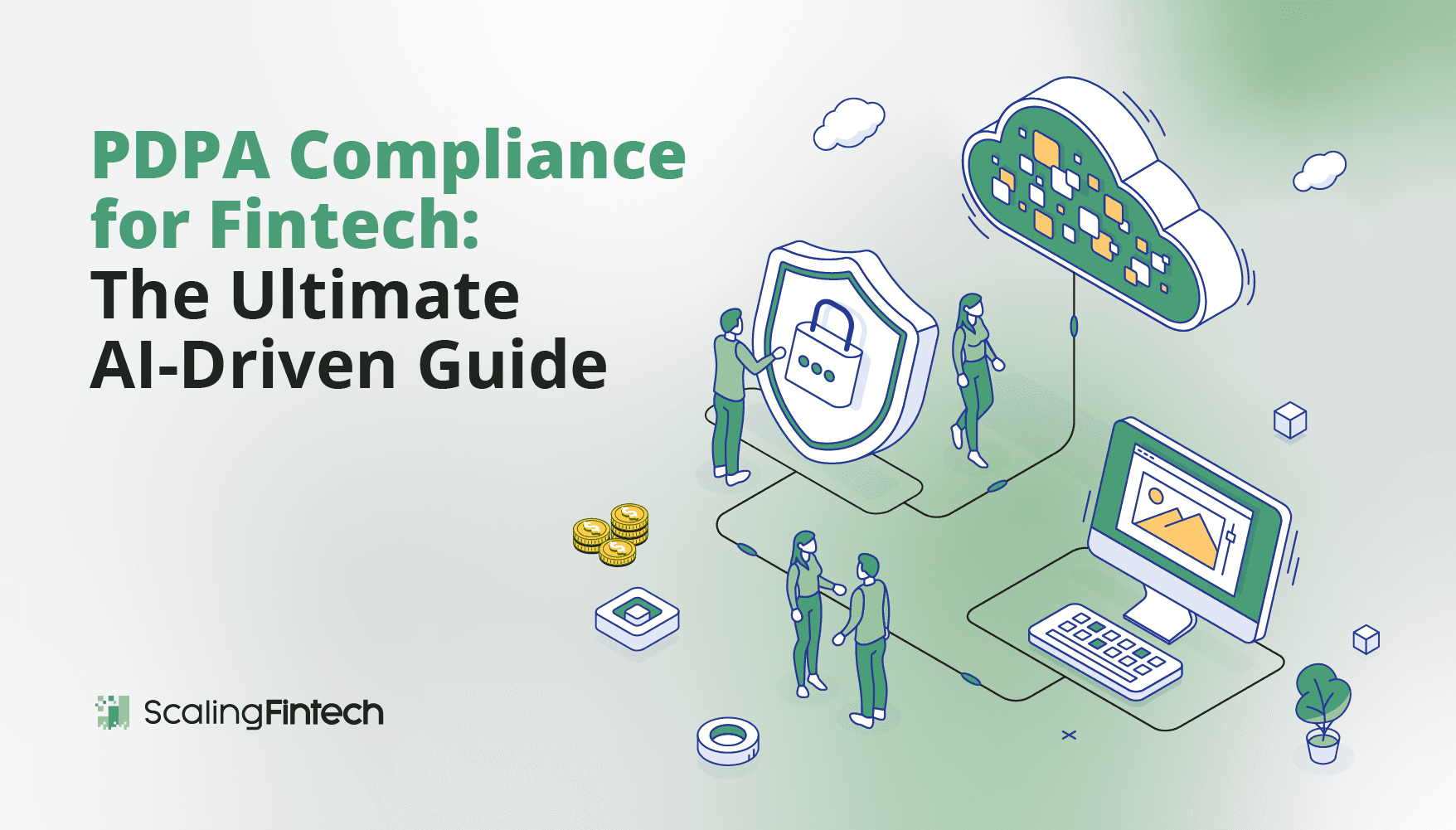Achieving PDPA compliance protects customer data, builds trust, and boosts growth. Learn how AI solutions make compliance easier for FinTech companies.
In FinTech, PDPA compliance is vital. It builds trust, enhances security, and protects reputation. As data breaches rise, adhering to Singapore’s data protection law safeguards customer information and supports business growth.
This guide explores why PDPA compliance is vital for FinTech companies and how AI-driven compliance solutions can streamline data protection, optimize consent management, and enhance risk assessment.
What Is PDPA and Why Is It Important for FinTech?
Understanding PDPA Requirements in FinTech
The Personal Data Protection Act (PDPA) is Singapore’s key data privacy law, mandating FinTech companies to comply with guidelines for collecting, using, and storing personal data like financial records and contact information. The PDPA meaning extends beyond mere compliance regulations; it encompasses a comprehensive framework for protecting individuals’ personal data.
Actionable Tip: Ensure all departments handling personal data, from marketing to IT, understand and comply with PDPA standards to avoid penalties and build trust. This includes adhering to data protection obligations and understanding the PDPA law thoroughly.
Key Benefits of PDPA Compliance for FinTech Companies

1. Enhanced Security
- Reduced Data Breaches: Companies with strong data protection measures report 40% fewer breaches.
- Cost Savings: Preventing a breach saves an estimated SGD 4.2 million.
- Improved Data Protection: Meeting PDPA mandates prevents fines and strengthens data security, fulfilling the protection obligation.
2. Improved Customer Trust
- Loyalty Boost: 80% of consumers prefer businesses they trust with personal information.
- Expanded Customer Base: Transparency in data handling can increase customer acquisition by up to 25%.
- Higher Engagement: Companies with strong trust see 30% higher engagement.
3. Competitive Edge in FinTech
- Market Share: Compliance boosts market share by 20% in regions where data security is prioritized.
- Revenue Growth: Compliant companies report 10%-15% higher revenue growth.
- Investor Interest: 70% of investors value data security when assessing FinTech companies.
4. Global Alignment with Data Standards
- International Market Access: PDPA compliance facilitates expansion into regions with similar standards (e.g., GDPR, CCPA).
- Cross-Border Growth: Global alignment increases cross-border customer acquisition by up to 35%.
- Lower Compliance Costs: Aligning with global standards reduces compliance expenses by up to 50%.
Consequences of Non-Compliance with PDPA
Failing to meet PDPA compliance standards can have serious financial and reputational repercussions.
1. Substantial Fines for Non-Compliance
- Financial Impact: PDPA fines can reach SGD 1 million (USD 730,000).
- Severity-Driven Penalties: Larger violations incur higher fines, affecting financial stability.
2. Operational Setbacks
- Service Disruptions: Regulators may halt data processing operations, impacting revenue and services.
- Customer Dissatisfaction: Service interruptions harm customer trust and satisfaction.
3. Reputational Damage from Poor Data Security
- Consumer Avoidance: 75% of consumers avoid companies with poor data security.
- Revenue Losses: Lost trust can lead to revenue declines that exceed initial fines.
4. Customer Churn and Lost Revenue
- Increased Churn: Data breaches can increase churn by up to 25%.
- Example: For a FinTech firm with 100,000 customers, a 10% churn from non-compliance could cost hundreds of thousands annually.
5. Increased Compliance Costs After Breaches
- Post-Breach Expenses: Non-compliance leads to corrective actions like enhanced security and regular audits.
- Long-Term Costs: Companies may spend 10%-20% more on security post-breach to regain compliance.
Core PDPA Compliance Requirements for FinTech Companies
1. Data Collection and Consent Management
FinTech companies need clear consent management policies. Explicit customer consent is essential, with accessible options to manage data preferences. This includes adhering to the do not call provisions of the PDPA.
Example: Use a checkbox or pop-up to confirm consent, ensuring customers understand what they’re agreeing to. Tip: Audit consent records regularly to ensure PDPA alignment.
2. Robust Data Security Measures
Data security in FinTech requires multiple layers of protection, including proper data storage and disclosure practices.
| Security Layer | Key Measures |
| Technical | Encryption, access controls |
| Physical | Restricted access areas |
| Administrative | Staff training, security policies |
Tip: Use advanced encryption and restrict access to sensitive systems to fulfill the protection obligation.
3. Transparency and Customer Data Access Rights
Provide customers visibility and control over their personal data through clear data practices, adhering to the access and correction obligation.
Tip: Add a “Manage My Data” section to simplify user data control.
4. Data Breach Response Protocols
Establish and test breach response protocols that include rapid breach assessment, customer notification, and regulatory reporting, fulfilling the notification obligation.
Example: A FinTech firm’s automated alert system reduced response time by 60%.
Leveraging AI for PDPA Compliance in FinTech
AI-driven solutions simplify PDPA compliance by automating monitoring, consent management, and data protection.
Key AI Applications in PDPA Compliance
- Automated Data Monitoring: AI automatically tags sensitive personal data, reducing manual errors and enhancing data security.
- Tip: Use AI monitoring to track data movement and identify risks in real time.
- AI-Powered Consent Management: Ensures permissions are up-to-date, flagging discrepancies to support continuous compliance.
- Tip: Implement automated validation to verify permissions before data-driven operations.
- Predictive Analytics for Risk Assessment: AI detects potential risks and alerts for compliance violations.
- Example: Predictive analytics reduced breaches by 30% for a FinTech company.
- Machine Learning for Anomaly Detection: Identifies unusual patterns that signal security threats, adapting to evolving compliance standards.
- Tip: Apply machine learning for high-risk areas like financial transactions and suspicious transaction reporting.
AI-Driven Solutions for PDPA-Compliant Marketing
AI makes it possible to balance personalization and privacy in FinTech marketing, helping companies target effectively while adhering to PDPA standards.
1. Consent Management for Marketing Campaigns
AI enables automated consent verification, ensuring campaigns reach opted-in users only, in line with do-not-call provisions.
Tip: Set up real-time alerts for changes in customer preferences.
2. Privacy-Conscious Personalization
AI supports targeted messaging that respects user privacy.

Example: AI personalizes emails based on consent settings, delivering relevant content without compromising privacy.
3. Automated Compliance Audits and Reporting
AI-powered audits provide real-time compliance reports to track permissions and align campaigns with PDPA.
Tip: Schedule monthly automated audits to identify compliance gaps.
Best Practices for PDPA Compliance in FinTech with AI
1. Maintain Transparent Data Practices
Use AI to document data usage and increase transparency, adhering to the openness obligation.
Tip: Add a “Your Data, Your Control” page on your platform to explain data use in simple terms.
2. Implement Consent-Based Targeting
AI ensures customer targeting aligns with the latest consent records, respecting the transfer limitation obligation.
Example: A FinTech company using AI-driven targeting improved campaign efficiency by 25%.
3. Conduct Regular Compliance Audits with AI
Regular AI audits detect violations early, enabling timely intervention and ensuring adherence to the retention limitation obligation.
Tip: Review audit logs quarterly to keep compliance practices up to date.
4. Stay Updated on Regulatory Changes with AI
AI systems track and adjust to regulatory changes, ensuring continued PDPA compliance and adherence to fintech regulation.
Example: An AI system that auto-updates compliance checklists based on regulatory changes kept a FinTech company fully compliant despite evolving laws.
5. Implement Robust Know Your Customer (KYC) Processes
Use AI to enhance know your customer and customer due diligence processes, particularly for identifying politically exposed persons in Singapore and adhering to anti-money laundering regulations.
Tip: Integrate AI-powered KYC tools with your existing compliance framework to streamline the process.
6. Appoint a Data Protection Officer
Designate a data protection officer to oversee PDPA compliance and manage data protection obligations.
Tip: Ensure your data protection officer stays updated on the latest PDPA policy changes and attends regular training.
The Future of PDPA Compliance in FinTech with AI
AI is transforming PDPA compliance, enabling automation, real-time risk identification, and swift adaptation to regulatory shifts. FinTech companies that adopt AI for PDPA compliance gain a competitive edge, proactively protecting customer data and business reputation.
How Scaling FinTech Can Help with PDPA Compliance
Scaling FinTech offers AI-driven, data-compliant advertising solutions tailored to meet the unique needs of FinTech companies. Our strategies focus on lead generation, conversions, and sustainable growth, all while adhering to strict privacy standards and data-sharing frameworks.
Why Partner with Scaling FinTech?
- Precision: Customized campaigns aligned with growth and compliance goals.
- Transparency: Real-time reporting ensures full visibility into campaign performance.
- Client-Centric Growth: Designed for impact and ROI, putting compliance at the forefront.
Get Started Today: Book a free strategy consultation with Scaling FinTech to discover how PDPA compliance can serve as a competitive edge in the evolving landscape of financial data protection.
Summary
PDPA compliance is vital for FinTech firms to protect personal data, maintain trust, and support growth. AI-powered compliance solutions simplify monitoring, consent management, and risk assessment, turning PDPA compliance into a strategic advantage. FinTech companies that embrace these technologies safeguard sensitive data and stay compliant with evolving standards, positioning themselves as leaders in a privacy-focused market.
Ready to Strengthen Your Compliance Strategy?
Take the next step in safeguarding your FinTech business. Schedule a Compliance Consultation with Scaling FinTech today to explore tailored, AI-powered solutions that ensure secure, compliant, and growth-ready operations.
FAQs
What are the ethical guidelines for AI in Singapore? In Singapore, the ethical guidelines for AI are integral to the regulatory frameworks. These guidelines aim to prevent AI systems from perpetuating bias or discrimination, ensuring that the use of artificial intelligence remains trustworthy and beneficial to society.
How can data privacy be protected when using AI? To protect data privacy while utilizing AI, several strategies can be employed:
- Implementing Differential Privacy to ensure individual data points cannot be identified.
- Using Homomorphic Encryption to allow data to be processed in an encrypted form.
- Practicing Data Minimization by only collecting necessary personal data.
- Applying Federated Learning to train algorithms across multiple decentralized devices.
- Conducting regular Audits and maintaining Transparency.
- Upholding strict Data Security and Compliance measures.
How is AI regulated in Singapore? Singapore regulates AI through a sectoral approach rather than overarching regulations. This means that individual ministries, authorities, and commissions are responsible for issuing guidelines and regulations specific to their sectors.
What is the new AI regulation framework in Singapore for 2024? In February 2024, Singapore introduced a draft framework specifically targeting generative AI technologies. This framework addresses several concerns, including the potential for AI-generated errors (“hallucinations”), copyright infringement, and ensuring that AI’s values align with societal norms.
What are the key PDPA obligations for FinTech companies? FinTech companies must adhere to several key PDPA obligations, including:
- Consent Obligation: Obtaining and managing customer consent for data collection and use.
- Purpose Limitation Obligation: Using personal data only for the purposes for which it was collected.
- Access and Correction Obligation: Allowing individuals to access and correct their personal data.
- Accuracy Obligation: Ensuring that personal data is accurate and complete.
- Protection Obligation: Implementing security measures to protect personal data.
- Retention Limitation Obligation: Retaining personal data only as long as necessary.
- Transfer Limitation Obligation: Transferring personal data overseas only with adequate protection.
What are the PDPA breach penalties in Singapore? PDPA breach penalties in Singapore can be severe. Organizations can face fines of up to SGD 1 million or 10% of the organization’s annual turnover in Singapore, whichever is higher. In addition to financial penalties, organizations may also face reputational damage and loss of customer trust.
How do Singapore money transfer regulations affect FinTech companies? Singapore money transfer regulations require FinTech companies engaged in remittance services to obtain a remittance license from the Monetary Authority of Singapore (MAS). These companies must comply with anti-money laundering and countering financing of terrorism regulations, including conducting customer due diligence and reporting suspicious transactions.




